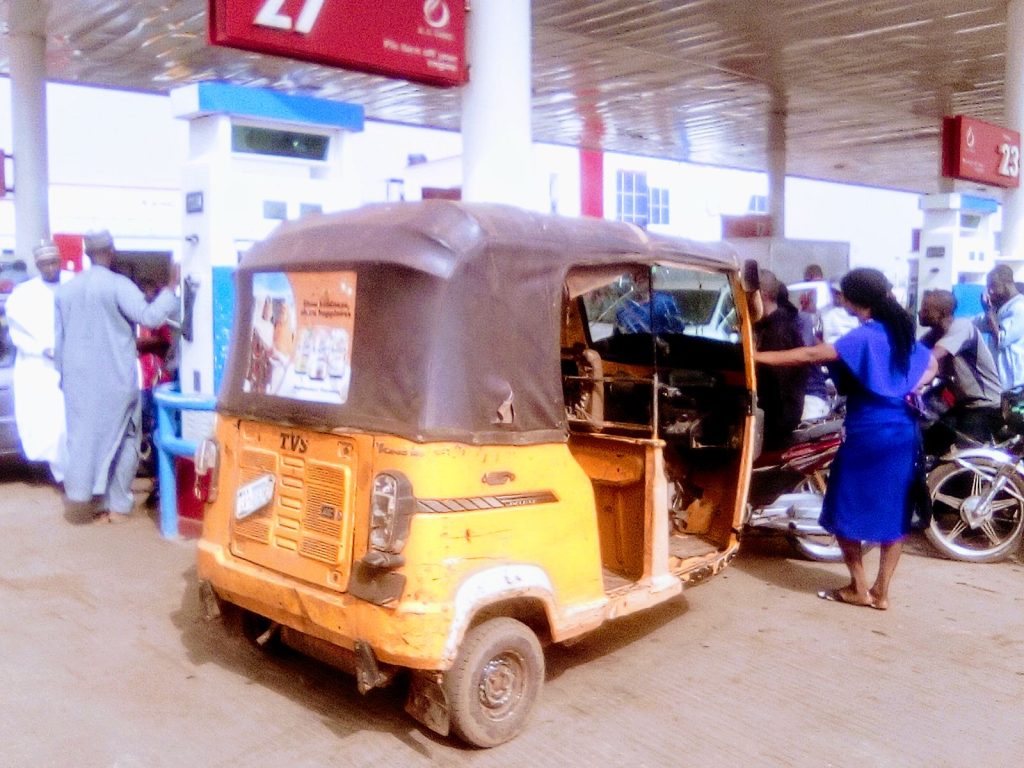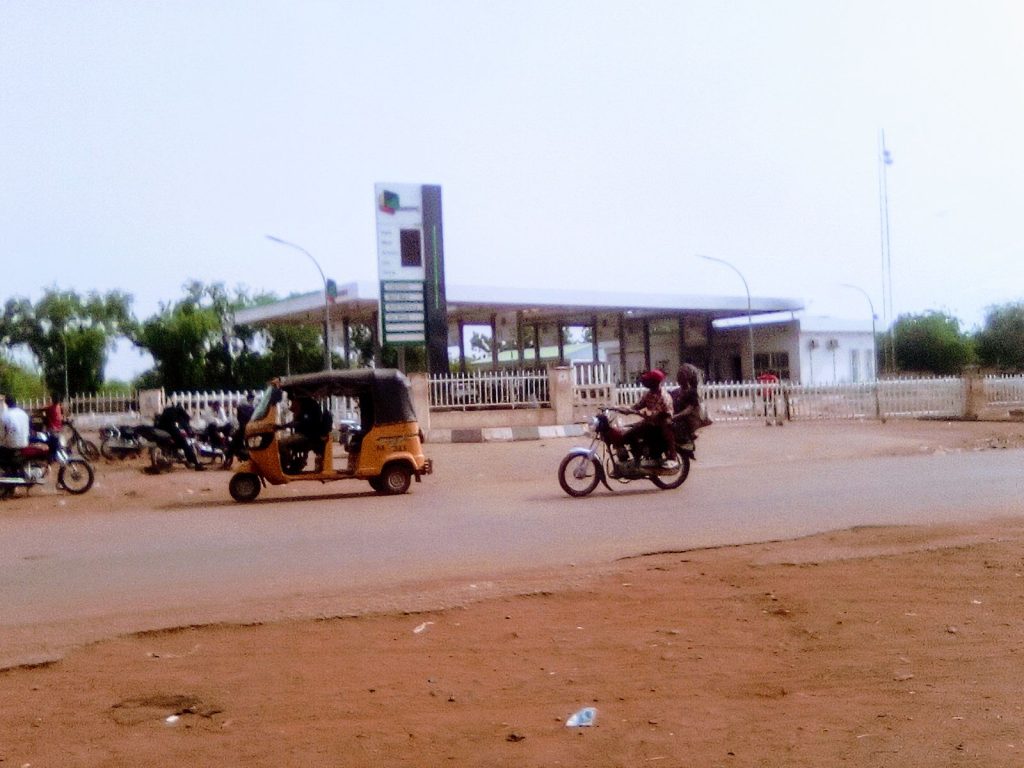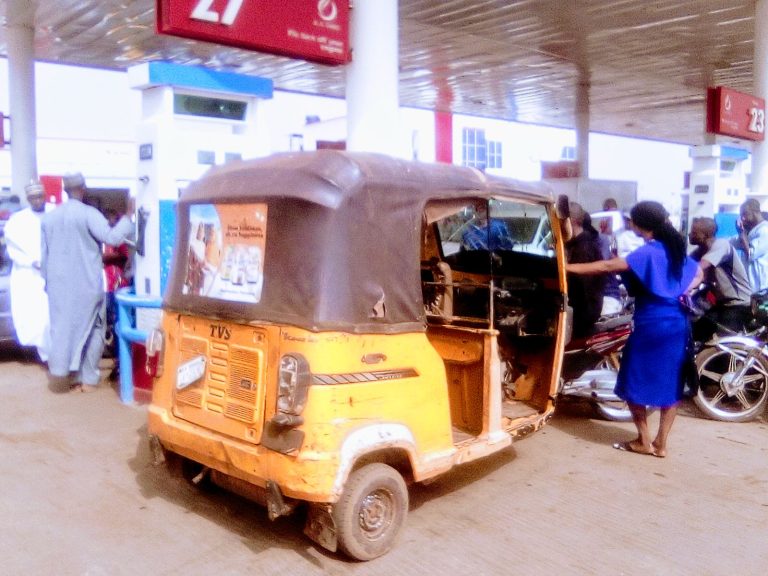The recent surge in fuel prices has hit Sokoto State hard, causing widespread distress among residents and daily commuters. Bike drivers, Keke operators, car owners, and business people are all feeling the pinch as they grapple with increased costs reshaping their daily lives and operations.
Premium Motor Spirit (PMS), commonly known as petrol, has escalated prices significantly across the country with Sokoto state not being exempted. Filling stations now charge between N650 and N750 per litre.
ASHENEWS visited some filling stations in Sokoto state and found different fuel prices. The lowest price is at NNPC, which sells for N620 per litre, A.A Rano sells for N730, while Conoil, Total, Oando, Zamson, and Azman sell for N750 per litre.
Escalating costs across the board
Motorcyclist Abdul Abdul describes his daily struggle to secure the cheapest fuel at NNPC for N620 per litre, despite long early-morning queues. He recalls the days when fuel cost just N120 per litre, a far cry from the current N620. To cope, he has had to double his fares from N200 to N400, but many passengers can’t afford these rates, forcing him to often settle for less.
“Two years ago, I used to buy a litre of fuel for N120 or sometimes N150, but now it costs N620, which is very expensive for me since I buy 10 litres per day for my bike. The motorcycle I use is on a hire purchase agreement for a year and I deliver payments to the owner every weekend.
Read Also: Sokoto plants 200 tree seedlings on World Environment Day
“I have to save for fuel and the bike payments, but customers don’t have enough money to pay us. I used to charge N200 or N180 for a trip from Offa Road to the market, but now I charge N400 or N450. Some passengers can’t afford this, so I accept N350 or N300, but I lose money that way”, he lamented.
Similarly, Keke driver Zahadeen Garba sources his fuel from A.A Rano at N730 per liter. He adjusts his fares based on distance but faces constant complaints from passengers who are also burdened by the high prices. Despite the difficulties, he continues to work hard to support his family, feeling the weight of rising costs in every aspect of his life.

“I drive passengers all over Sokoto state and charge based on the distance because of the high fuel prices. Some passengers complain about the cost, but I explain to them that it is not our fault the fuel price is high. I am not also happy about the prices because everyone is just trying to survive.
“Early last year, the price wasn’t this high, and we charged passengers less. Since the new President took office, prices have skyrocketed, and no one is helping us. I have three children and rely on this job to feed them, send them to school, and pay rent. It’s not easy for me”, he bemoaned.
Businesses bear the brunt
Business owners like Mrs Fatima Yahaya, who runs a computer centre, are also severely impacted. Fuel is her biggest operational cost, necessary to power her shop’s equipment for up to eight hours daily. She spends a substantial amount daily on fuel from Zamson filling station, priced at N750 per litre to keep her business running.
“Fuel is my major problem in the shop because I have two desktop computers, four big printers, and two scanners. I also buy paper for printing, but fuel costs me the most.

“I open the shop at 10:30 am and run the generator for over eight hours until 6 pm. On days with less work, the generator runs for 4 hours. A friend suggested using gas to power the generator, but I have not tried it yet. I buy 15 litres of fuel daily because all the tools especially the printers consume a lot of fuel.
Salome Ali, working at a law firm, faces similar challenges. The firm’s generator, essential for its operations, consumes significant amounts of fuel daily, adding to the financial strain.
“When we open at 8:00 am, we turn on the generator because people come in for their cases. In the afternoon, after lunch, I buy another 10 litres and add five to six litres to the generator to last until we close.
“Last year, fuel cost N110 per litre, but now everything has gone up. That is why when a bike man charges a high price for a ride from the office to my house, I don’t argue because I know how much he pays for fuel.”
Personal impacts on daily life
Car owners like Mr. Jonathan Victor, who need fuel for daily commutes and weekend activities, are also struggling. Victor prefers to buy from cheaper sources like NNPC but often opts for pricier stations to avoid long lines.
“It costs me 30 litres of fuel weekly to drive from my house to work, pick up my kids, drop them at home, and return to my office before heading home at the end of the day.
“I don’t usually go anywhere else besides my office, my children’s school, and home, but I still need to buy fuel on Saturday evening for church on Sunday. I buy fuel from Azman filling station at N750 per litre though I would prefer to buy from NNPC. NNPC is cheaper, but the lines are always too long.”
Meanwhile, Mr. Isha Muhammad, a private motorcyclist, manages his fuel consumption carefully, balancing between cheaper and more convenient options to stretch his fuel supply as far as possible.
“If I was told that I would pay above N500 for fuel, I would never have agreed to it but see now, I pay between N620 to N750 for fuel and if I do not get it from the filling stations, the black market sells it between N900 to N1,000. I buy from black marketers when I run out of fuel late at night.
“I buy 10 litres from NNPC on Saturdays, and it lasts me for a week and some days. When I notice my fuel is running low, I go to Total filling station near my office and add three litres to last until the next Saturday.”
The impact of the spike in fuel is felt across all sectors, from transportation to small businesses, underscoring the urgent need for solutions to this escalating crisis.
As the cost of living continues to rise, the people of Sokoto face a daily battle to maintain their livelihoods and support their families amidst the high fuel prices.


